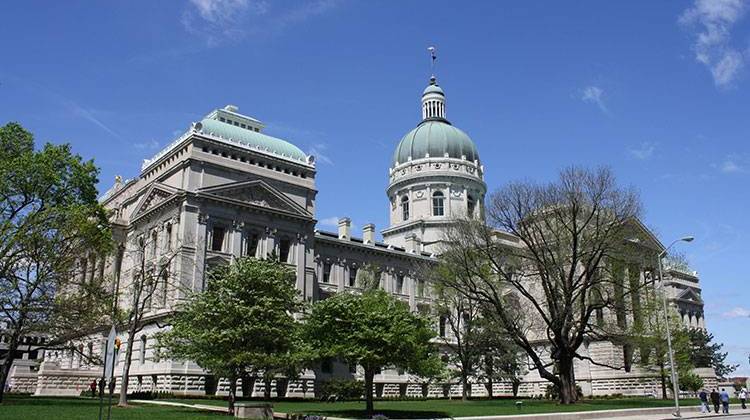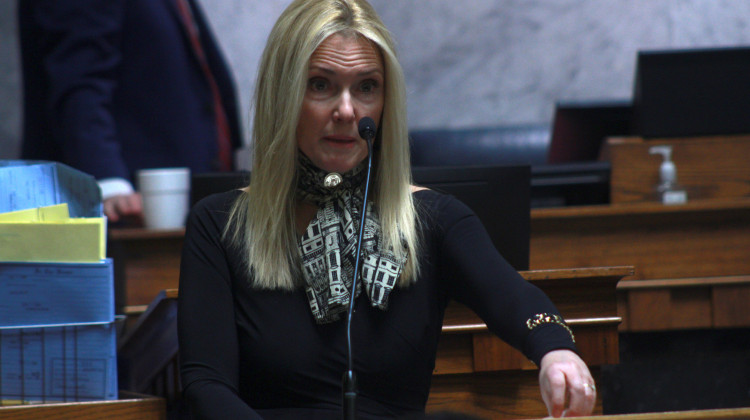In the waning hours of the 2015 session of the Indiana General Assembly, lawmakers approved a balanced-budget amendment. It would enshrine in the state’s constitution a prohibition on the legislature crafting a budget that spends more than the state collects in taxes.
It wasn’t on their radar until Governor Mike Pence listed it as one of his top legislative priorities in his State of the State Address. Governors typically like to include a surprise in their State of the State addresses, introducing a concept or making an announcement not previously discussed.
“A balanced budget requirement in the constitution of the state of Indiana will assure Hoosiers that today and tomorrow, Indiana will spend wisely, protect our state from an economic downturn and – unlike Washington, D.C. – we won’t bury our grandchildren under a mountain of debt,” Pence said.
The governor called it remarkable that Indiana’s constitution doesn’t include this rule when most states have the requirement. According to the National Conference of State Legislatures, there are more than 30 states whose constitution requires the legislature to pass a balanced budget.
But, some say the true surprise is that the topic is even up for debate.
“In the 20 plus years that I have been following the legislature the question of whether or not to balance the budget has never been an issue. It’s always been balanced,” said John Ketzenberger, director of the Indiana Fiscal Policy Institute, a nonpartisan organization that studies tax and budget policies.
Ketzenberger also notes that Indiana’s constitution already prohibits the state from incurring debt except in emergency situations.
But, Buck Creek Republican Brandt Hershman says that language isn’t explicit enough. Hershman, who authored the resolution, says the current constitutional provision doesn’t specifically apply to spending practices when crafting a state budget.
“Even though we have balanced it in recent years there is no requirement that we do so and so a future legislature that didn’t have the same kind of fiscal discipline that we have here in today’s environment could put the state into serious financial difficulty unless we have this protection,” Hershman said.
He says this guardrail will help protect Indiana’s future. The credit-rating agency Standard and Poor’s recently came out in favor of the amendment, saying it would “strengthen Indiana’s government framework.”
But critics, like Ketzenberger, point out that Indiana already enjoys the highest rating possible from the agency.
“A triple-A rating is a triple-A rating,” Ketzenberger said. “You don’t get any bonus for triple-A plus.”
The amendment does include an override of the requirement with a two-thirds majority in both chambers. Hershman calls it an escape hatch for emergency situations.
But, Portage Democratic Senator Karen Tallian calls it ironic. She says the two-thirds override actually leaves the door open to spend in a way that the Indiana Constitution currently doesn’t allow.
“What this language will allow you to do is have a two-thirds majority that says you don’t have to pay attention to that,” Tallian said. “You could pass an imbalanced budget. And in fact, I think it makes it weaker than the law we already have.”
Supporters of the balanced-budget amendment will still have plenty of time to make their case. Though the amendment was approved this session, it still needs to pass a separately elected assembly before it can be placed on the ballot for the public to approve. That means the earliest the public could have its official say is November of 2018.
 DONATE
DONATE









 Support WFYI. We can't do it without you.
Support WFYI. We can't do it without you.